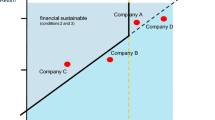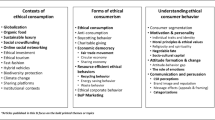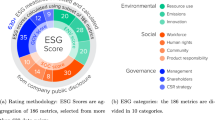Abstract
Developers often conduct forward sales (or presales) before building completion to relieve financial risk and burden. However, there are worries that housing units sold in this way will turn out to be substandard because developers, who have been paid for the unfinished units, may have incentives to cut costs by lowering the quality. This is a typical moral hazard problem. Nonetheless, forward sales have been very popular in some Asian cities such as Hong Kong, Singapore, and Taiwan. A plausible explanation is that the market has efficiently adjusted the forward price for this potential quality problem according to developers’ reputations. This paper aims to theoretically explain and empirically test (1) whether reputation is reflected in forward prices and (2) whether the expected quality level matches with the actual quality level. Using the forward and spot sales data of the Hong Kong real estate market, we found that even though housing quality was not observable during presales, the market was able to capitalize developers’ reputations into forward prices accurately. This suggests that the optimal strategy for developers is to stick to the quality level implied by their reputations.
Similar content being viewed by others
References
Akerlof, G. (1970). The market for ‘lemons.’ Quarterly Journal of Economics, 84, 488–500.
Chau, K. W., Wong, S. K., & Yiu, C. Y. (2003). Price discovery function of forward contracts in the real estate market: An empirical test. Journal of Financial Management of Property and Construction, 8(3), 129–137.
Chang, L. O., & Ward, C. W. (1993). Forward pricing and the housing market: The pre-sales housing system in Taiwan. Journal of Property Research, 10(3), 217–227.
Gale, D., & Rosenthal, R. W. (1994). Price and quality cycles for experience goods. The RAND Journal of Economics, 25(4), 590–607.
Garbade, K. D., & Silber, W. L. (1983). Price movements and price discovery in futures and cash markets. Review of Economics and Statistics, 65(2), 289–297.
Gwin, C. R., & Ong, S. E. (2000). Homeowner warranties and building codes. Journal of Property Investment and Finance, 18(4), 456–472.
Holmstrom, B. (1979). Moral hazard and observability. Bell Journal of Economics, 10(1), 74–91.
Kim, C. H., & Kim, K. H. (2001). Short-term leases, long-term investments, and tradable goodwill. Journal of Housing Economics, 10, 162–175.
Kreps, D. M., & Wilson, R. (1982). Reputation and imperfect information. Journal of Economic Theory, 27, 253–279.
Lai, R. N., Wang, K., & Zhou, Y. (2004). Sale before completion of development: Pricing and strategy. Real Estate Economics, 32(2), 329–357.
Law Reform Commission of Hong Kong (1995). Report on Description of Flats on Sale. Hong Kong Government, April 1995.
Miller, R. A. (1988). Innovation and reputation. Journal of Political Economy, 96(4), 741–765.
Mirrlees, J. A. (1999). The theory of moral hazard and unobservable behaviour: Part I. Review of Economic Studies, 66(1), 3–21.
Mueller, C. D., & Supina, D. (2002). Goodwill capital. Small Business Economics, 19, 233–253.
Nelson, P. (1970). Information and consumer behavior. Journal of Political Economy, 78(2), 311–329.
Ong, S. E. (1997). Building defects, warranties and project financing from pre-completion marketing. Journal of Property Finance, 8(1), 35–51.
Pauly, M. (1968). The economics of moral hazard: Comment. American Economic Review, 58(3), 531–536.
Shapiro, C. (1982). Consumer information, product quality, and seller reputation. Bell Journal of Economics, 13(1), 20–35.
Shapiro, C. (1983). Premiums for high quality products as returns to reputations. Quarterly Journal of Economics, 98(4), 659–680.
Tadelis, S. (1999). What’s in a name? Reputation as a tradable asset. American Economic Review, 89(3), 548–563.
Wong, S. K., Yiu, C. Y., Tse, M. K. S., & Chau, K. W. (2006). Do the forward sales of real estate stabilize spot prices? Journal of Real Estate Finance and Economics, 32, 289–304.
Yiu, C. Y., Hui, E. C. M., & Wong, S. K. (2005). Lead-lag relationship between the real estate spot and forward contracts markets. Journal of Real Estate Portfolio Management, 11(3), 253–262.
Author information
Authors and Affiliations
Corresponding author
Additional information
A paper submitted to Journal of Real Estate Finance and Economics. A Special Issue for the 2005 NUS-HKU Symposium on Real Estate Research.
Rights and permissions
About this article
Cite this article
Chau, K.W., Wong, S.K. & Yiu, C.Y. Housing Quality in the Forward Contracts Market. J Real Estate Finan Econ 34, 313–325 (2007). https://doi.org/10.1007/s11146-007-9018-x
Published:
Issue Date:
DOI: https://doi.org/10.1007/s11146-007-9018-x




